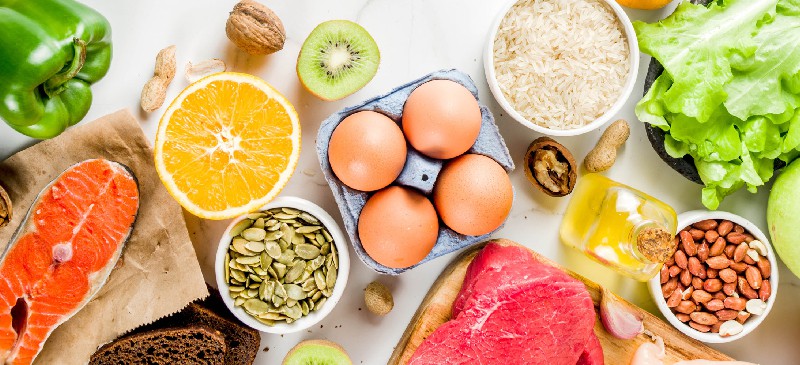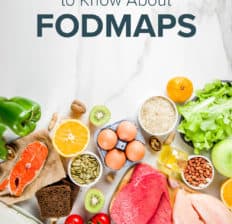This Dr. Axe content is medically reviewed or fact checked to ensure factually accurate information.
With strict editorial sourcing guidelines, we only link to academic research institutions, reputable media sites and, when research is available, medically peer-reviewed studies. Note that the numbers in parentheses (1, 2, etc.) are clickable links to these studies.
The information in our articles is NOT intended to replace a one-on-one relationship with a qualified health care professional and is not intended as medical advice.
This article is based on scientific evidence, written by experts and fact checked by our trained editorial staff. Note that the numbers in parentheses (1, 2, etc.) are clickable links to medically peer-reviewed studies.
Our team includes licensed nutritionists and dietitians, certified health education specialists, as well as certified strength and conditioning specialists, personal trainers and corrective exercise specialists. Our team aims to be not only thorough with its research, but also objective and unbiased.
The information in our articles is NOT intended to replace a one-on-one relationship with a qualified health care professional and is not intended as medical advice.
What Are FODMAPs? Is This Food List the Key to Treating IBS?
March 13, 2023

FODMAP is an acronym for a collection of food molecules (mostly sugars) that are short-chained carbohydrates, both fermentable and poorly absorbed in the gut. If you haven’t heard the term “FODMAPs” thrown around at work or at the gym lately, you probably will soon enough.
Essentially, FODMAPs stands for fermentable oligosaccharides, disaccharides, monosaccharides and polyols. These are specific sugars found in food, such as fructose, lactose, fructans, galactans and polyols. Because they’re not absorbed completely by the human body, they’re easily fermented by gut bacteria and can cause significant gastrointestinal problems.
A team at Australia–based Monash University, led by professor Peter Gibson and including Dr. Sue Shepherd and others, developed the low FODMAP diet. It …
provided the first evidence that a Low FODMAP diet improves IBS symptoms. Irritable bowel syndrome (IBS) is a common functional gastrointestinal disorder affecting one in seven Australian adults and is also common in the USA, Europe and many Asian countries … The research team at Monash University have developed a diet to control gastrointestinal symptoms associated with IBS/FGID focusing on a group of carbohydrates called FODMAPs. Current research strongly suggests that this group of carbohydrates contributes to IBS/FGID symptoms.
What Are FODMAPs? (Role in IBS)
IBS affects more than 10 percent of the world’s population. A low FODMAP diet has been shown to not only take the burden off the digestive system, but also greatly reduce the symptoms of IBS. This low FODMAPs diet has brought much needed hope to millions of people because IBS is such a common, complicated disease.
Here are some important facts about IBS from an article published in the journal Clinical Epidemiology:
- Younger women are most at risk, and people over 50 are 25 percent less likely to be affected.
- Only 30 percent of people with IBS will consult a physician for treatment, which tells us that there is a huge group of people out there suffering with IBS and no idea how to treat it because these people don’t even know what they’re up against.
- It’s important to realize that these people aren’t steering clear from the doctor because they don’t want help, but because they’re confused. According to the study, undiagnosed IBS patients “do not have significantly different abdominal symptoms to those who do consult, but they do have greater levels of anxiety and lower quality of life.” The symptoms of IBS are hard to diagnose because they’re so similar to common digestive symptoms.
- Also, even though people are not likely to die sooner because of it, “Patients diagnosed with IBS are highly likely to have other functional diseases and have more surgery than the general population,” which could indirectly lead to higher mortality rates and other sickness and/or disease.
Typically, developing symptoms like abdominal pain, bloating, gas and altered bowel habits (ranging from constipation to diarrhea) indicate IBS. However, the primary cause of IBS is unknown, which has added to its mysterious nature.
For the past several years, gluten has become a common scapegoat for IBS. In fact, eliminating it has been a growing treatment or approach for all bowel and digestive issues, but this approach is not always necessary or appropriate for every IBS sufferer.
One of the first articles to question the gluten theory was published in the journal Current Allergy and Asthma Reports by Australian researchers who made some serious waves with their 2013 study, “Is Gluten a Cause of Gastrointestinal Symptoms in People Without Celiac Disease?”
After repeating a randomized, control trial that appeared to suggest gluten made gastrointestinal symptoms worse, the Monash University scientists were unable to confirm that. “Patients with self-perceived NCGS [non-celiac Gluten Sensitivity] have specific gluten sensitivity,” they reported.
That means many people who believe they’re gluten-intolerant may actually be suffering from other GI issues related to FODMAPs, not specifically gluten.
Next thing you know, this study went viral, and FODMAPs were put on the map.
More research is still needed, and the jury is still out, so don’t go throwing away your gluten-free lifestyle just yet. As research continues to shed light on this topic, there’s still good reason to avoid wheat and most grains for certain people.
If going gluten-free hasn’t resolved your issues though, you may want to look at adopting a low FODMAP diet and see if FODMAPs are the root cause in your case.
Low FODMAP Diet
The same Australian researchers set out to discover the real cause of GI complaints and appear confident that the culprits are fermentable oligo-, di- and monosaccharides, along with polyols, more commonly known as “FODMAPs.”
The team took 37 patients with non-celiac gluten sensitivity (NCGS) and IBS and conducted a double-blind crossover trial where they all were given a reduced FODMAPs diet and then randomly assigned each person to one of three groups for two weeks: high-gluten, low-gluten and a control diet without any gluten. The results were quite astounding:
- GI symptoms consistently and significantly improved during reduced FODMAPs intake for all participants.
- Every person experienced significantly worse symptoms when gluten or whey proteins were reintroduced into the diet.
- Only 8 percent of participants suffered from gluten-specific effects.
- GI issues linked to gluten were not reproduced.
A 2014 study published in the journal Gastroenterology discovered similar results. Testing to see how the typical Western diet fared against one low in FODMAPs, the researchers took 30 patients with IBS and eight healthy people who acted as the “control group” and randomly separated them into two groups for 21 days: one that ate less than 0.5 grams of FODMAPs per meal and one that ate “regular” food.
The participants rated their daily symptoms on a 0–100 scale. At the end of the three weeks, they reported an average 22.8 score compared to the 44.9 that came with the typical Australian diet — literally cutting their usual bloating, gas and abdominal pain by 50 percent. Just think what this can mean for people suffering from IBS all over the world.
Allison Siebecker, ND, MSOM, L.Ac, has seen similar results in her practice regarding small intestinal bacterial overgrowth (referred to as SIBO) — a condition defined as “the abnormal growth in the small intestine of bacteria that are normally found only in the colon.” Intimately connected, SIBO oftentimes causes symptoms very similar to IBS and is involved in the disease processes that cause IBS. In turn, IBS has actually been shown to cause SIBO.
Essentially designed to restrict food sources (primarily carbohydrates) for harmful bacteria, Dr. Siebecker advises that the “established SIBO treatment diets are the Specific Carbohydrate Diet (SCD), the Gut and Psychology Syndrome Diet (Gaps Diet), the Low Fodmap Diet (LFD) or a combination of these diets such as SIBO Specific Food Guide (SCD + LFD)…”
To get control of their symptoms without the use of drugs or undergoing surgery, Patsy Catsos, MS, RD, recommends that a FODMAP elimination diet be done for two weeks. Then she recommends re-challenging your body with one FODMAP item at a time, until you get to the final diet that includes all the foods that are well-tolerated.
Anyone with IBS or SIBO will be able to nail down the triggers and get the situation under control within a relatively short period of time.
The hope that this provides patients with IBS and SIBO cannot be overemphasized. Many times, I’ve heard questions about why IBS and digestive issues aren’t alleviated after a person gives up gluten. Often, a low FODMAP diet turns out to be exactly the answer these people are seeking.
Food Lists
Foods to Entirely Avoid
Vegetables
- Artichoke
- Asparagus
- Cauliflower
- Garlic
- Green peas
- Leek
- Mushrooms
- Onion
- Sugar snap peas
Fruits
- Apples
- Apple juice
- Cherries
- Dried fruit
- Mango
- Nectarines
- Peaches
- Pears
- Plums
- Watermelon
Dairy
- Cow’s milk
- Custard
- Evaporated milk
- Ice cream
- Soy milk
- Sweetened condensed milk
- Yogurt
Protein Foods
- Most legumes
Breads
- Wheat
- Rye
- Barley
Sweeteners
- High fructose corn syrup
- Honey
Nuts and Seeds
- Cashews
- Pistachios
It’ll take some getting used to, but don’t worry — in no time flat, you’ll be a veritable expert at avoiding poorly absorbed short-chain carbohydrates. Keep in mind that the point of this diet is to limit products that ferment in your stomach, not to avoid probiotic-rich fermented foods. This would be a major mistake because fermented veggies and raw dairy are mainstays of the GAPS protocol.

Foods to Include
Vegetables
- Alfalfa/bean sprouts
- Bamboo shoots
- Bell peppers
- Bok choy
- Carrots
- Chives
- Choy sum
- Cucumbers
- Fresh herbs
- Lettuce and salad greens
- Potatoes
- Pumpkin
- Spinach
- Squash (winter, butternut)
- Tomato
- Zucchini
Fruits
- Banana
- Berries
- Cantaloupe
- Grapes
- Honeydew
- Kiwi
- Kumquat
- Lemon
- Lime
- Mandarin
- Orange
- Passion fruit
- Pineapple
- Rhubarb
- Tangerine
Dairy Alternatives
- Raw hard cheese (cheddar, colby, parmesan, Swiss, etc.)
- Almond, coconut or rice milk
Protein Foods
- Eggs
- Grass-fed beef
- Grass-fed lamb
- Wild-caught fish
- Free-range chicken
- Free-range turkey
- Tempeh
Breads, Grains and Snacks
- Gluten-free breads
- Gluten-free oats
- Gluten-free pasta
- GMO-free corn
- GMO-free rice
- Quinoa
- Sourdough spelt
Nuts and Seeds (Sprouted or Nut Butters Preferred)
- Macadamia
- Organic peanut
- Pecans
- Pine nuts
- Pumpkin seeds
- Walnuts
Condiments
- Cooking oils (avocado, coconut, grapeseed)
- Grass-fed butter
- Maple syrup
- Mayonnaise
- Most herbs and spices
- Mustard
- Olives
- Salad dressings (homemade)
- Soy sauce
- Vinegar
Foods to Limit
Additionally, some foods are considered to contain a moderate amount of FODMAPs, so it’s recommended to limit serving sizes:
Fruits
- ¼ avocado
- < 3 cherries
- ½ grapefruit (medium)
- ½ pomegranate (small)
- ¼ cup shredded coconut
- < 10 dried banana chips
Vegetables
- ¼ cup artichoke hearts (canned)
- < 3 asparagus spears
- < 4 beet slices
- < ½ cup broccoli
- < ½ cup Brussels sprouts
- < 1/4 cup butternut pumpkin
- < 1 cup cabbage (savoy)
- < 1 celery stick
- < ½ cup green peas
- < 3 okra pods
- < 10 pods snow peas
- < ½ corn cob
- < ½ cup sweet potatoes
Nuts
- Almonds (< 10)
- Hazelnuts (<10)
It’s important to note that this list does not cover all foods that can and can’t be eaten on the low FODMAP diet. I recommend consulting your dietitian and the Monash University Low FODMAP Diet App if you’re wondering what foods fit the guidelines.














